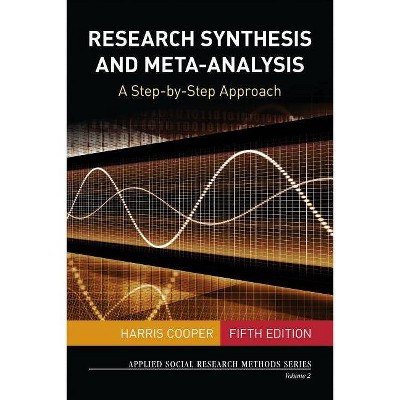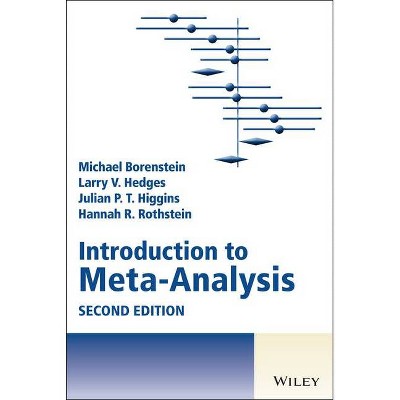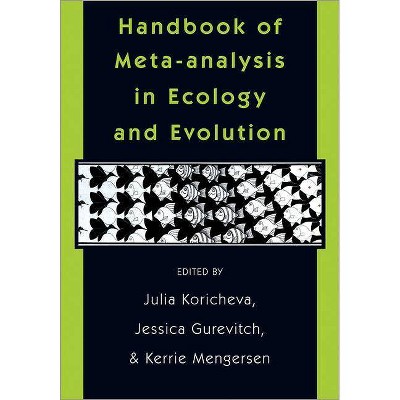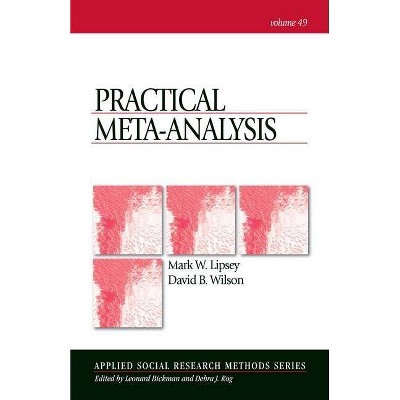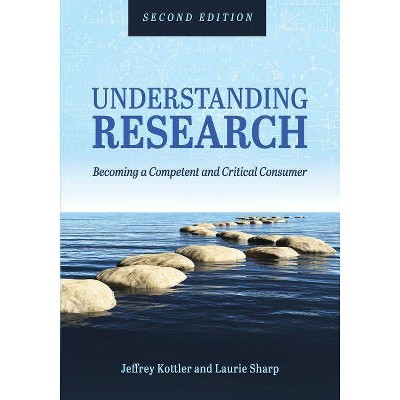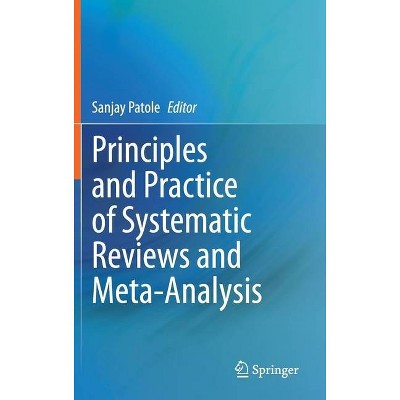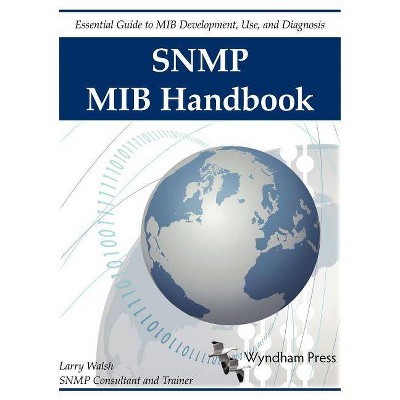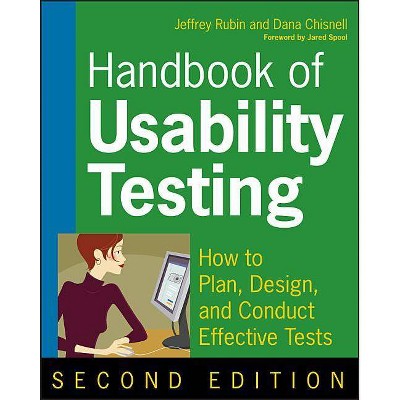Handbook of Research Synthesis and Meta-Analysis - 3rd Edition by Harris Cooper & Larry V Hedges & Jeffrey C Valentine (Paperback)
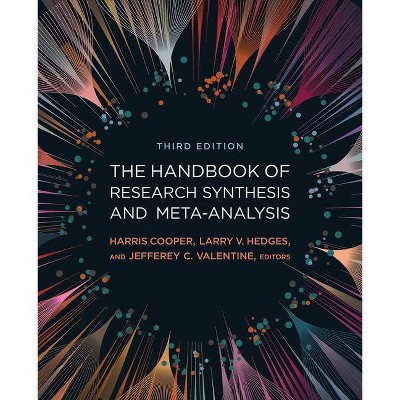
Similar Products
Products of same category from the store
AllProduct info
<p/><br></br><p><b> About the Book </b></p></br></br>Research synthesis is the practice of systematically distilling and integrating data from many studies in order to draw more reliable conclusions about a given research issue. When the first edition of <i>The Handbook of Research Synthesis and Meta-Analysis </i>was published in 1994, it quickly became the definitive reference for conducting meta-analyses in both the social and behavioral sciences. In the third edition, editors Harris Cooper, Larry Hedges, and Jeff Valentine present updated versions of classic chapters and add new sections that evaluate cutting-edge developments in the field. <p/><i>The Handbook of Research Synthesis and Meta-Analysis</i> draws upon groundbreaking advances that have transformed research synthesis from a narrative craft into an important scientific process in its own right. The editors and leading scholars guide the reader through every stage of the research synthesis process--problem formulation, literature search and evaluation, statistical integration, and report preparation. The Handbook incorporates state-of-the-art techniques from all quantitative synthesis traditions and distills a vast literature to explain the most effective solutions to the problems of quantitative data integration. Among the statistical issues addressed are the synthesis of non-independent data sets, fixed and random effects methods, the performance of sensitivity analyses and model assessments, the development of machine-based abstract screening, the increased use of meta-regression and the problems of missing data. The Handbook also addresses the non-statistical aspects of research synthesis, including searching the literature and developing schemes for gathering information from study reports. Those engaged in research synthesis will find useful advice on how tables, graphs, and narration can foster communication of the results of research syntheses. <p/> The third edition of the Handbook provides comprehensive instruction in the skills necessary to conduct research syntheses and represents the premier text on research synthesis. <br><p/><br></br><p><b> Book Synopsis </b></p></br></br>Research synthesis is the practice of systematically distilling and integrating data from many studies in order to draw more reliable conclusions about a given research issue. When the first edition of <i>The Handbook of Research Synthesis and Meta-Analysis </i>was published in 1994, it quickly became the definitive reference for conducting meta-analyses in both the social and behavioral sciences. In the third edition, editors Harris Cooper, Larry Hedges, and Jeff Valentine present updated versions of classic chapters and add new sections that evaluate cutting-edge developments in the field. <p/><i>The Handbook of Research Synthesis and Meta-Analysis</i> draws upon groundbreaking advances that have transformed research synthesis from a narrative craft into an important scientific process in its own right. The editors and leading scholars guide the reader through every stage of the research synthesis process--problem formulation, literature search and evaluation, statistical integration, and report preparation. The Handbook incorporates state-of-the-art techniques from all quantitative synthesis traditions and distills a vast literature to explain the most effective solutions to the problems of quantitative data integration. Among the statistical issues addressed are the synthesis of non-independent data sets, fixed and random effects methods, the performance of sensitivity analyses and model assessments, the development of machine-based abstract screening, the increased use of meta-regression and the problems of missing data. The Handbook also addresses the non-statistical aspects of research synthesis, including searching the literature and developing schemes for gathering information from study reports. Those engaged in research synthesis will find useful advice on how tables, graphs, and narration can foster communication of the results of research syntheses. <p/> The third edition of the Handbook provides comprehensive instruction in the skills necessary to conduct research syntheses and represents the premier text on research synthesis. <p/> <br> Praise for the first edition: "The Handbook is a comprehensive treatment of literature synthesis and provides practical advice for anyone deep in the throes of, just teetering on the brink of, or attempting to decipher a meta-analysis. Given the expanding application and importance of literature synthesis, understanding both its strengths and weaknesses is essential for its practitioners and consumers. This volume is a good beginning for those who wish to gain that understanding." --Chance "Meta-analysis, as the statistical analysis of a large collection of results from individual studies is called, has now achieved a status of respectability in medicine. This respectability, when combined with the slight hint of mystique that sometimes surrounds meta-analysis, ensures that results of studies that use it are treated with the respect they deserve....The Handbook of Research Synthesis is one of the most important publications in this subject both as a definitive reference book and a practical manual."--British Medical Journal When the first edition of The Handbook of Research Synthesis was published in 1994, it quickly became the definitive reference for researchers conducting meta-analyses of existing research in both the social and biological sciences. In this fully revised second edition, editors Harris Cooper, Larry Hedges, and Jeff Valentine present updated versions of the Handbook's classic chapters, as well as entirely new sections reporting on the most recent, cutting-edge developments in the field. Research synthesis is the practice of systematically distilling and integrating data from a variety of sources in order to draw more reliable conclusions about a given question or topic. The Handbook of Research Synthesis and Meta-Analysis draws upon years of groundbreaking advances that have transformed research synthesis from a narrative craft into an important scientific process in its own right. Cooper, Hedges, and Valentine have assembled leading authorities in the field to guide the reader through every stage of the research synthesis process--problem formulation, literature search and evaluation, statistical integration, and report preparation. The Handbook of Research Synthesis and Meta-Analysis incorporates state-of-the-art techniques from all quantitative synthesis traditions. Distilling a vast technical literature and many informal sources, the Handbook provides a portfolio of the most effective solutions to the problems of quantitative data integration. Among the statistical issues addressed by the authors are the synthesis of non-independent data sets, fixed and random effects methods, the performance of sensitivity analyses and model assessments, and the problem of missing data. The Handbook of Research Synthesis and Meta-Analysis also provides a rich treatment of the non-statistical aspects of research synthesis. Topics include searching the literature, and developing schemes for gathering information from study reports. Those engaged in research synthesis will also find useful advice on how tables, graphs, and narration can be used to provide the most meaningful communication of the results of research synthesis. In addition, the editors address the potentials and limitations of research synthesis, and its future directions. The past decade has been a period of enormous growth in the field of research synthesis. The second edition Handbook thoroughly revises original chapters to assure that the volume remains the most authoritative source of information for researchers undertaking meta-analysis today. In response to the increasing use of research synthesis in the formation of public policy, the second edition includes a new chapter on both the strengths and limitations of research synthesis in policy debates<p/><br></br><p><b> Review Quotes </b></p></br></br><br><b>Praise for the Previous Edition</b> <p/> "As someone who is highly involved in conducting meta-analyses and teaching meta-analysis to students, I can say that this handbook has a chapter on every issue that arises. Each chapter is written by a major expert in the field and provides authoritative answers. <i>The Handbook of Research Synthesis and Meta-Analysis</i> is a must-have for anyone working on meta-analysis." <p/> --JANET SHIBLEY HYDE, Helen Thompson Woolley Professor, University of Wisconsin<br><br>"[a] tour de force, an indispensable reference that no meta-analyst will want to be without. It is elegantly organized, encyclopedic in breadth and coverage, and articulate in exposition of the role meta-analysis plays in advancing the cumulative nature of knowledge. [The book] is destined to become a classic . . . highly recommended and a must for any serious student or practitioner of the research enterprise." <p/> --FREDERIC M. WOLF, Learning Resource Center, University of Michigan<br><p/><br></br><p><b> About the Author </b></p></br></br><b>Harris Cooper</b> is Hugo L. Blomquist Professor of Psychology and Neuroscience at Duke University. <p/><b>Larry V. Hedges</b> is Professor of Statistics and Education and Social Policy at Northwestern University. <p/><b>Jeffrey C. Valentine</b> is Professor of Education and Human Development at the University of Louisville. <p/><b>CONTRIBUTORS: </b> Ariel M. Aloe, Besty Jane Becker, Michael Borenstein, Kathleen Coburn, Thomas D. Cook, Harris Cooper, Dean Giustini, Julie Glanville, Sean Grant, Larry V. Hedges, Julian P. T. Higgins, Spyros Konstantopoulos, Huy Le, Mark W. Lipsey, Georg E. Matt, In-Sue Oh, Robert G. Orwin, Terri D. Pigott, Frank L. Schmidt, Rebecca Turner, Jeffrey C. Valentine, Jack L. Vevea, Howard D. White, David B. Wilson, Evan Mayo-Wilson, Sandra Jo Wilson, Nicole A. M. Zelinsky
Price History
Cheapest price in the interval: 99.95 on October 27, 2021
Most expensive price in the interval: 99.95 on November 6, 2021
Price Archive shows prices from various stores, lets you see history and find the cheapest. There is no actual sale on the website. For all support, inquiry and suggestion messages communication@pricearchive.us
